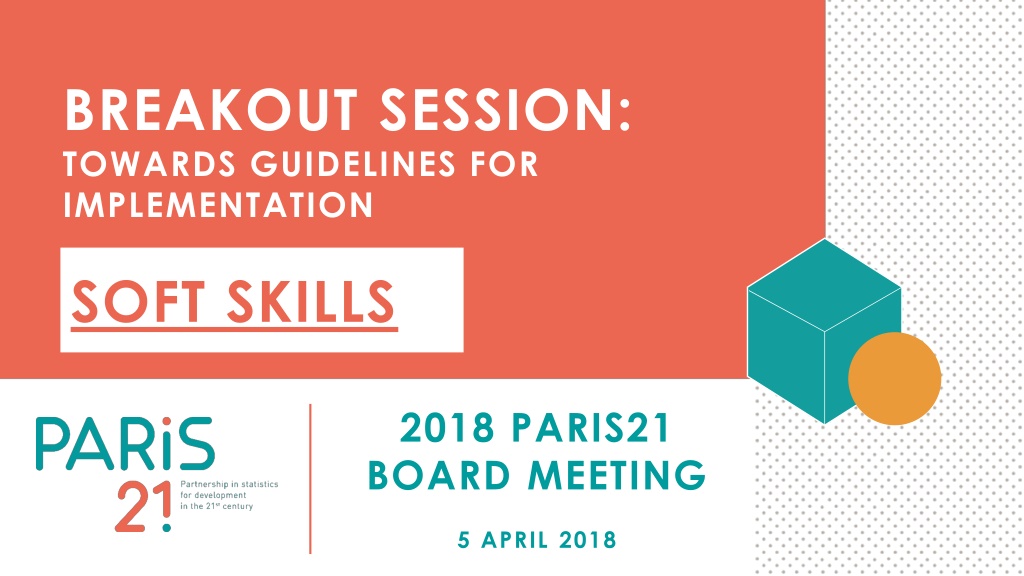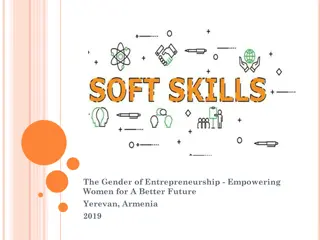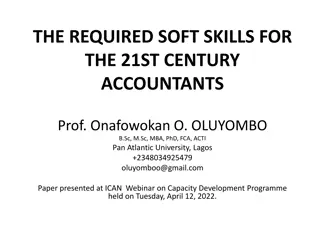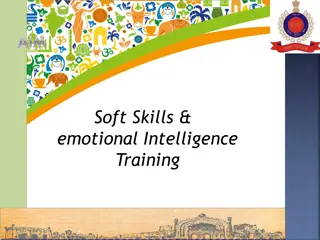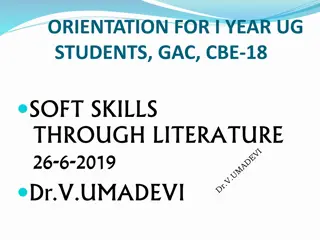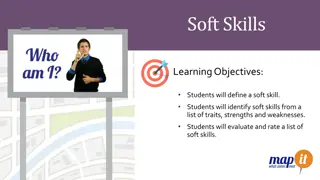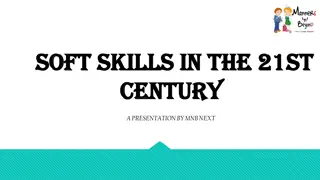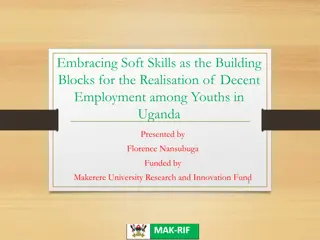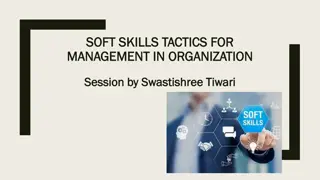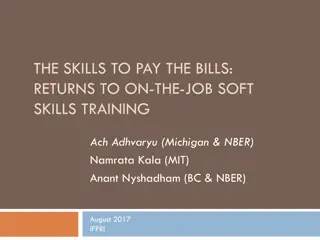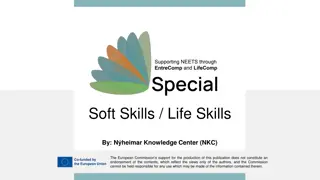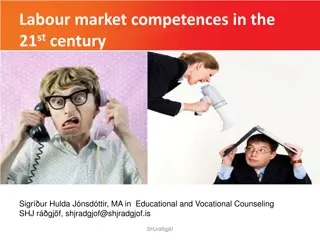Guidelines for Implementing Soft Skills Development Programs
The breakout session at the 2018 PARIS21 Board Meeting discussed the importance of developing soft skills alongside technical skills. Participants highlighted the need for tailored capacity assistance with a country-led focus. Strategies suggested included comprehensive capacity assessments, leadership empowerment, partnerships with academia and business schools, mentorship programs, knowledge-sharing platforms, and technical cooperation. The session emphasized the significance of strategic planning, work ethic, self-motivation, management, and leadership as essential soft skills to cultivate in employees.
- Soft Skills Development
- Capacity Building
- PARIS21 Board Meeting
- Training Programs
- Leadership Empowerment
Download Presentation

Please find below an Image/Link to download the presentation.
The content on the website is provided AS IS for your information and personal use only. It may not be sold, licensed, or shared on other websites without obtaining consent from the author. Download presentation by click this link. If you encounter any issues during the download, it is possible that the publisher has removed the file from their server.
E N D
Presentation Transcript
BREAKOUT SESSION: TOWARDS GUIDELINES FOR IMPLEMENTATION SOFT SKILLS 2018 PARIS21 BOARD MEETING 5 APRIL 2018
2 The main issue The main issue resulting from the capacity development 4.0 survey focused on the lack of tailored capacity assistance with a country-led focus . Focus on Soft Skills While 54% of NSOs consider that technical skills are the most important to develop in their employees, the development of other types of skills is increasingly needed. For example, strategic planning and work ethic and self-motivation came out as the most important skills to develop in Latin America, while strategic planning, management and leadership skills emerged as important in Africa.
3 Marina Gandolfo (National Institute for Statistics, Italy) Mark Hereward (UNICEF) Possible solutions How might we design and implement programmes that help build soft skills? Soft Skills solutions (agreements) DEMAND SIDE 1. Plan the capacity development - Comprehensive capacity development assessment to decide the needed training support - Institutional monitoring, evaluation of targets, results-based assessment of the results and behavioural changes (re-organization/restructuring of human resources management for soft skills) - Avoid one-size fits all solution; consider local culture and context - Dedicated leadership empowered with high technical managerial skills - Take initiative plus plan - Only train in what we can do - Training plan on specific soft skills
4 Marina Gandolfo (National Institute for Statistics, Italy) Mark Hereward (UNICEF) Possible solutions How might we design and implement programmes that help build soft skills? Soft Skills solutions (agreements) SUPPLY SIDE 1. Partnerships - with academia - with leading organizations on specific topics - with business schools - with private sector 2. Learning from each other in person - mentorship linked with assessment of outcomes - secondments of statisticians in other ministries - transfer management and leadership knowledge - coaching
5 Marina Gandolfo (National Institute for Statistics, Italy) Mark Hereward (UNICEF) Possible solutions How might we design and implement programmes that help build soft skills? Soft Skills solutions (agreements) SUPPLY SIDE 3. Sharing/exchange experience - Platform for sharing expertise and providing materials - Exchange good practices for soft skills between NSOs - Select champion NSO an announce during UNSC and document best practice - Encourage bilateral agreements between NSOs on long-term support programs 4. Technical cooperation - Sending of consultant to NSO - Develop generic curriculum for training soft skills for statisticians - Organize hands-on workshop with mandatory certificate for all statistician work in the statistical units within the NSS - Leadership and management training
7 Breakout Group Objective Group 1 Group 2 Group 3 Consultation alignment w/national development plans (country demand) New (soft) skills Costing of activities (absorptive capacity) Marina Gandolfo (National Institute for Statistics, Italy), Mark Hereward (UNICEF) Papa Seck (UN Women) Cristina Pereira de Sa (Eurostat) Philipp Sch nrock (CEPEI) Tale Kvalvaag (NORAD) GT RR FF
